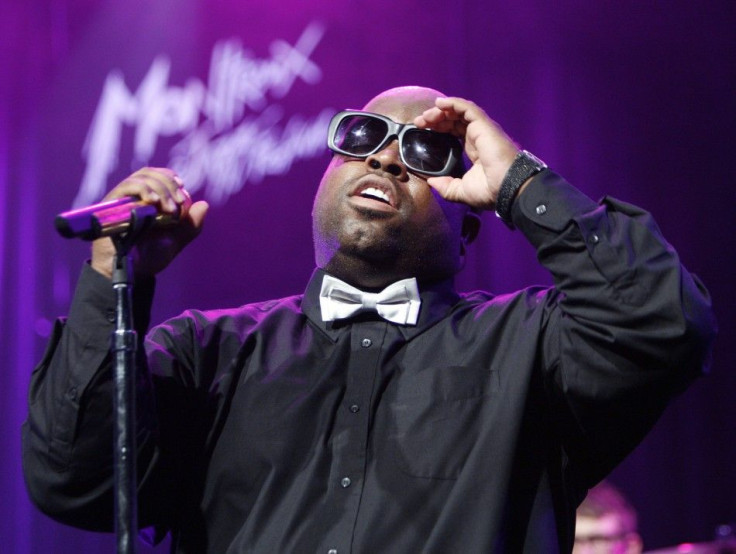Was Cee Lo Green Right Changing Lennon 'Imagine' Lyrics to 'All Religions True'?: Just a New Yorker's Opinion

Cee Lo, why did you do it? In Times Square New York, why did you change John Lennon's lyrics?
New Years Eve 2012 and already religious conflict has reared its head. Now the controversy du jour is about the Singer Ce Lo Green changing the words to John Lennon's song Imagine? From no religions too[updated] to all religions true? I like the sentiment, which I'll get to in a bit, and the uproar points out the problem with religion we all face, together, in 2012.
In fact the trouble all started with the One-God concept, and I mean no disrespect. Not the believing in it. But the believing that it negates another person's God (or lack of one) in the process.
Today we live in a world where there are many supreme Gods, and frankly, I have to ask, What are we going to do? Is it inevitable that we continue to have wars of religion between people who believe their God is supreme, and, basically, the only God?
Is that what everyone wants? So before condemning me, just remember, I am not passing any judgement on which God is actually God; that's way above my pay-grade. I wouldn't presume to argue the fine points with religious scholars. But if I had them all in a room together, I would ask them, What are you guys going to do?
I bring it up because, unlike devoted John Lennon fans, who are outraged that Cee Lo changed the lyrics of Imagine, I think the New Year's Eve singer had a point. When Lennon said what he said, he took a position that is not really practical in a world in which roughly 70 percent of the seven billion people on the planet believe in God. And different Gods at that.
That belief is not going to change. It is, so to speak, unshakeable. After all, that is what religious belief is about. I know that radical atheists, like Richard Dawkins, think it's all bunk, and if people only could see that religion would be done. I think reports of religions demise are profoundly premature, though.
Other people's opinions of a person's belief, say what an atheist thinks about your religion, have no real weight. A belief, after all, is based on faith; it doesn't have to be based on empirical evidence. So no amount of science will shake it. Many scientists, for instance, are devout. If Dawkins assumption was correct, that would not be possible.
But whether beliefs are based on something real, or not, as people act from their beliefs, and we all do, even secularists, then those actions are real and empirical--in the real world they have real impact. They also lead to massive conflicts, even in our high-tech era where we are all supposed to be so very modern and advanced. Pardon me, but I see nothing modern or advanced about the age-old practice of waging wars over religion.
What is modern and advanced is how closely we are all, regardless of beliefs, interconnected and crowded together on this planet. That is something that has stripped us of the luxury of holding our conflicting beliefs at a safe distance from each other. That is why 2012 is when we should all make a resolution to change.
The last decade has seen a heightening of religious conflicts, not a lessening of it, unless you think that the Muslim-Christian conflicts in Bosnia, the Middle East, parts of Africa, the clash of the Falon Gong with authorities in China, and our own religious-secular clashes over rights and laws in this country can really be explained as clashes caused just by economics or geography. I don't think so. I think conflicting beliefs are at the core.
My resolution for the New Year is to see how the world looks if I stop thinking that everyone whose religious ideas don't agree with mine is plain wrong, in the hope, however vain, that the other guys will start to accept mine as well. Maybe together we can find some common ground that respects our differences by accepting our similarities.
How could that work? When you look at something too big to see in one glance, like a really big mountain, you have to walk around it to get a sense of what it looks like. And when you do that, you can't really get the whole picture, so depending on where you are it looks different to you.
That's why maps of the world were so problematic until we went to space and could look down and see the coastlines and geological formations of the continents all together. Then we could really see what everything was.
That's how I feel about those Big Questions. No one can fully grasp them, and depending on where you are standing--your background, your beliefs, your culture and language, and what your parents and friends think, and whether you eat meat or not and everything else--the mysteries of the universe looks different to you.
Those differences are something we are all going to have to learn to live with.
© Copyright IBTimes 2025. All rights reserved.





















